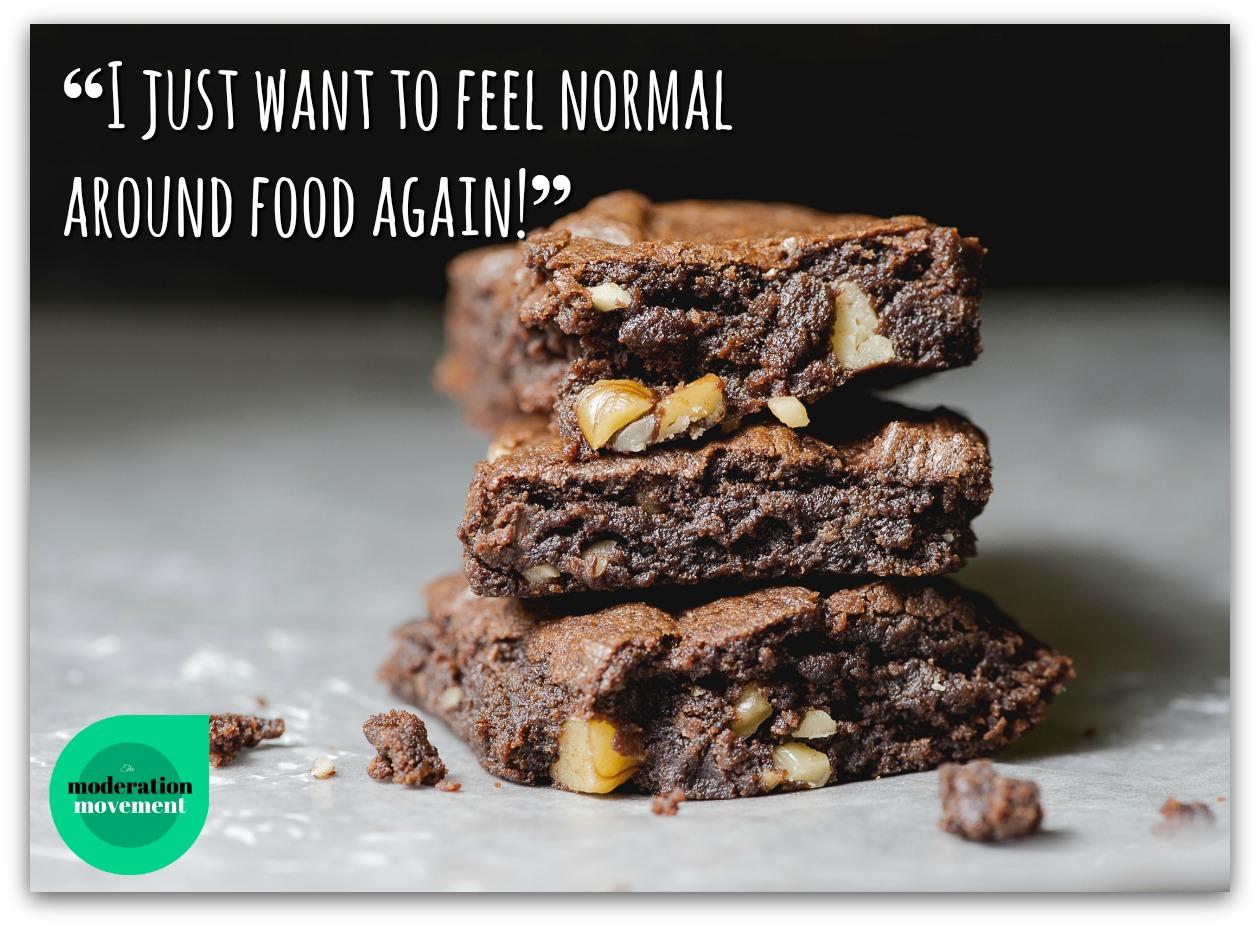“I just want to feel normal around food again!”

This is a common cry we non-diet dietitians hear from people who come to see us.
So what does it mean to feel normal around food? Let me give you a couple of stories to help explain.
Story 1 – A normal relationship with food
Mary and Tom are enjoying a day shopping at the local market. Mary gets a whiff of freshly baked brownies coming from one of the food trucks and says to Tom, “Shall we get one of those?” Tom says, “You go ahead and have one, I’m not in the mood for one just now.” Mary buys a warm brownie and thoroughly enjoys the eating experience. End of story.
Story 2 – A complicated relationship with food
Fred and Sarah are enjoying a day shopping at the local market. Sarah gets a whiff of freshly baked brownies coming from one of the food trucks and says to Fred, “Gosh how good do they smell, but one would totally blow our calorie allowance, we’d better be good.” Fred says, “Plus all that sugar, so toxic, but that smell is good and making me want to eat.” Sarah points out another food truck selling “superfood” smoothies and says, “Let’s get one of those!” Fred and Sarah buy a turmeric, kale and coconut smoothie each. Unbeknownst to the couple, the smoothie had roughly the same amount of calories as the brownie.
Later that evening Fred and Sarah find themselves demolishing a whole packet of chocolate biscuits, they didn’t intend to do this, it started with the idea of just having one as they’d been “good” at the market and didn’t have the brownie. But one biscuit quickly turned into two, then three, then it was a case of, “We’ve blown it now, may as well finish these of so they’re not in the house and we won’t buy them again!”. In addition to feeling sick from so many biscuits, both Fred and Sarah experienced a sense of deep shame at having “lost control”. Not only did avoiding a desired food fail to limit their calories* as was their goal, it actually led to consuming many more than if they’d just been able to enjoy the brownie.
*Note: I am not advocating limiting calories. Calorie control is at best ineffective and often leads to weight gain in the long-run.
I’d love to say this was the end of the story, but as many of you reading this well know, this type of relationship with food can last many many years. So how do you break this cycle? The first step is to change the way you think about food and health, to loosen your grip on the false belief that certain food is “bad” and that controlling calories is an effective to manage your weight. This is a key focus of the non-diet (or anti-diet) approach. If you’ve spent years watching your food in an attempt to control your weight, how successful have you been? Population level statistics show that nearly everyone** who tries this regains the weight at some point with many people ending up heavier after years of battling food and their weight. Controlling calories and or restriction of certain food has been sold as a principle way to achieve weight loss for decades – even I used to believe this – but if it really was effective, surely we’d be a nation of thin people by now!
**If you are in the very small percentage that has managed to keep a significant amount of weight off through fastidiously controlling your food and you are completely at ease with doing this, then I am not writing this to suggest what you’re doing is wrong. This is for everybody else.
In writing this, I am not saying that the amount of calories we eat isn’t a factor in body weight, of course it is. What I’m saying is that using calories as a way to manage our food is generally ineffective, can complicate your relationship with food and very often leads to over-consuming them as seen in Fred and Sarah’s story.
If you would like to learn more how to manage your eating and improve your relationship with food, have a look at the non-diet/intuitive eating approach. Please be aware that anyone talking about non-diet or intuitive eating as a weight loss method will not using this approach effectively, choose a HAES (Health At Every Size) dietitian!
